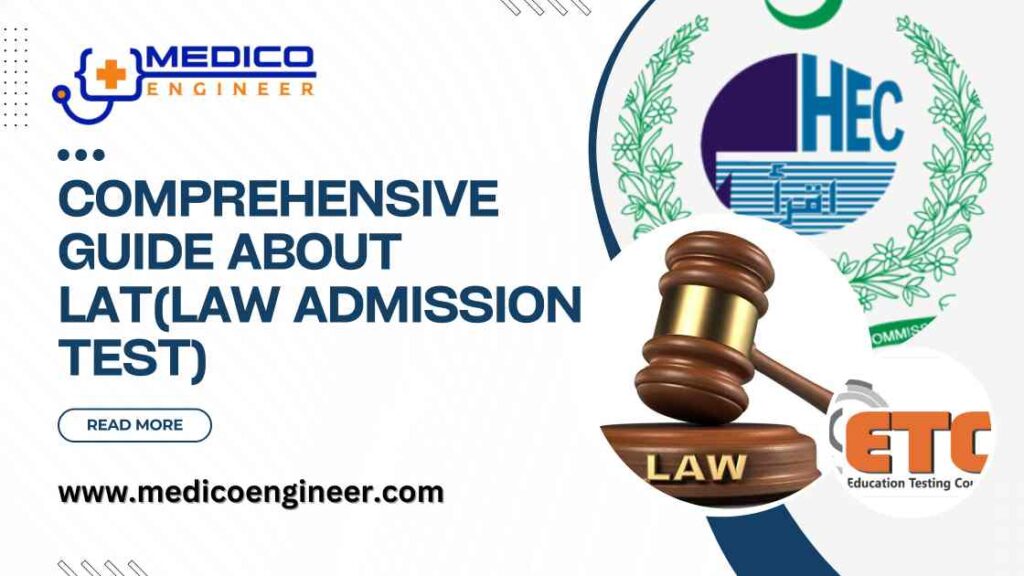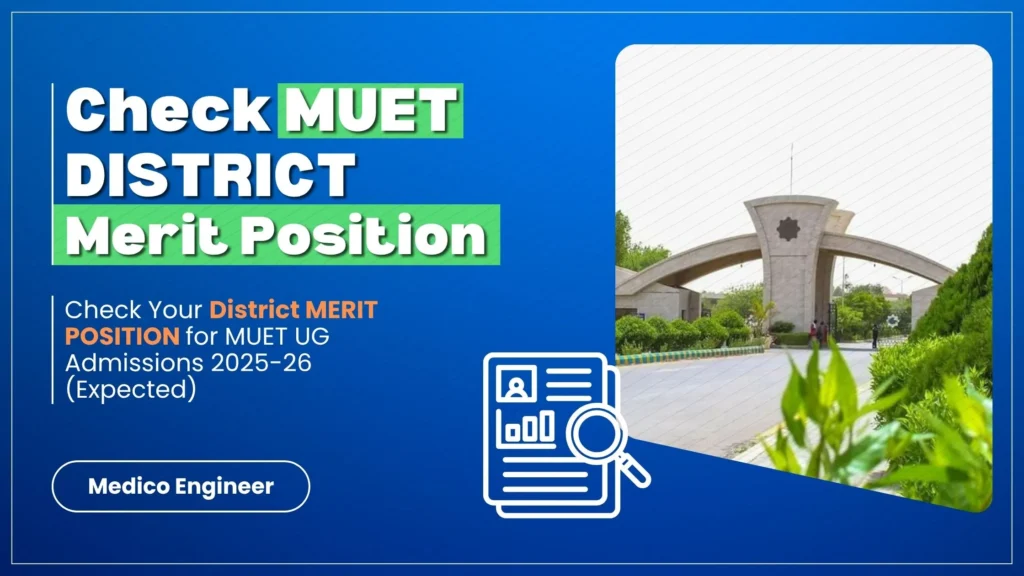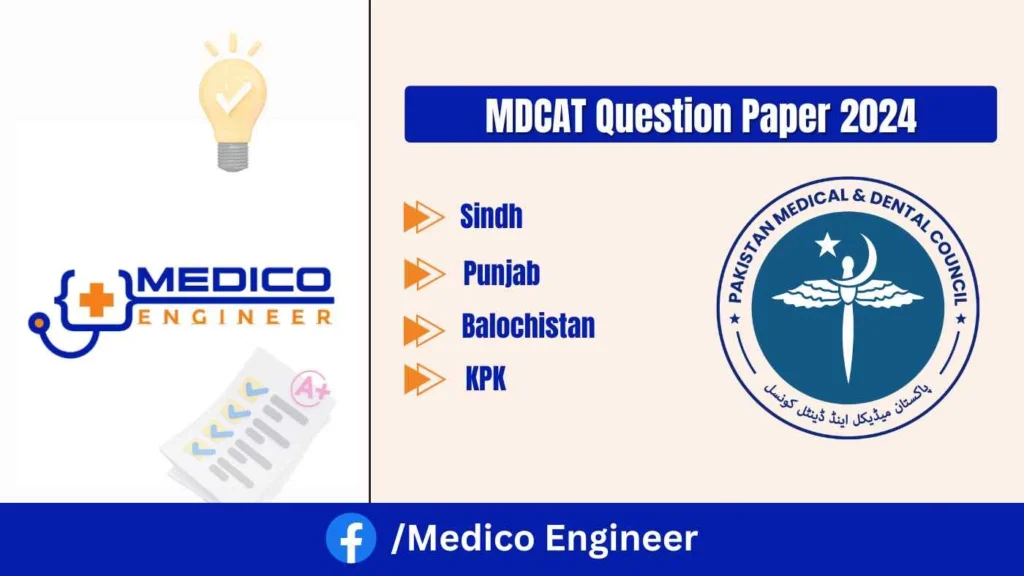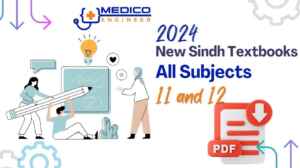
Table of Contents
The HEC Law Admission Test (LAT) is a standardized examination administered by the Higher Education Commission (HEC) of Pakistan. It serves as a gateway for admission into undergraduate law programs offered by both public and private universities in the country. This test evaluates candidates’ understanding of the law, their ability for legal reasoning, and their proficiency in written communication.
Syllabus of the HEC LAT Test:
The test comprises two main parts:
- Part I: Multiple Choice Questions (MCQs)
- Part II: Essay & Personal Statement Writing
Part I encompasses 75 MCQs across various subjects, including:
- English
- General Knowledge
- Pakistan Studies
- Islamiat
- Mathematics
- Urdu
Part II of the test includes two questions:
- One essay on a general topic up to 200 words (15 marks)
- One personal statement up to 200 words (10 marks)
Personal statement and an Essay can be written either in Urdu or in English.
Weightage of Subjects:
The following weightage applies to each subject:
| Division of Questions | Marks |
|---|---|
| Essay (either in English or Urdu) | 15 |
| Personal Statement (either in English or Urdu) | 10 |
| MCQs: English | 20 |
| MCQs: General Knowledge | 20 |
| MCQs: Islamic Studies | 10 |
| MCQs: Pakistan Studies | 10 |
| MCQs: Urdu | 10 |
| MCQs: Math | 05 |
| Total Marks | 100 |
| Passing Marks | 50 |
Duration of the Test in Pakistan:
The test extends over 2 hours and 20 minutes. Part-I lasts for 100 minutes, while Part-II is a 40-minute section.
Eligibility for the HEC Law Admission Test:
The eligibility criteria for this test pertain to:
- Students who have completed the Higher Secondary School Certificate (HSSC) or an equivalent qualification.
- Students who have appeared for the final HSSC examination or its equivalent, with pending results.
Any modifications to the examination date will be communicated via http://etc.hec.gov.pk.
How many times HEC conducts LAT in a year?
The HEC conducts the LAT exam three or more times annually, following the official schedule provided by the Higher Education Commision, usually in January, April, July, and November.
Online Registration for the Test:
To register for the LAT test online, visit the link http://etc.hec.gov.pk for online registration, Last date for registration is Tuesday, August 5, 2025 and test will conducted on Sunday, August 24, 2025.
The test fee, amounting to Rs. 1820/-, can be paid online, via ATM, or through a bank draft.
Applicants who complete the registration process through HEC’s online platform can download their Roll Number Slips via http://etc.hec.gov.pk one week before the examination date.
Preparation Tips:
How to Prepare for this test?
Effective preparation for this test begins with a comprehensive understanding of the syllabus and the types of questions that will be asked. After grasping the syllabus, practice MCQs and essays on various topics.
Here are some preparation tips for this test:
- Start Early: Commence your preparations early to have ample time to cover the syllabus and practice for the test.
- Create a Study Plan: Develop a structured study plan to cover all crucial topics.
- Use Past Papers: Past papers offer insight into the test’s question format.
- Practice MCQs: Given their significance, practice MCQs across different subjects.
- Essay Writing: Practice writing essays on diverse topics.
- Mock Tests: Take mock tests to become accustomed to the test format and timing. Focus particularly on sports, international organizations’ history, and capital cities and currencies of common countries, as well as notable geographical features.
Recommended Book for LAT Preparation in 2025:
Various books are available for LAT preparation, including:
- Elements of LAT book
- LAT Test Preparation Guide book
- LAT Test Past Papers Solved book
In addition to books, numerous online resources, such as practice tests, video tutorials, and study guides, are available for LAT preparation.
Conclusion:
The LAT test is a critical milestone for aspiring law students. By following the provided tips, you can enhance your chances of success in the test.






